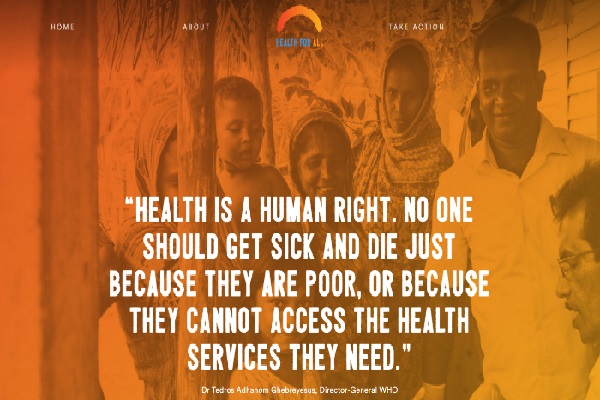 Credit: WHO
Credit: WHO
This World Health Day, celebrated each year on 7 April, and the 70th anniversary of the World Health Organisation (WHO) mark a unique opportunity to draw the world's attention to the right to universal health coverage.
In this context, Luxembourg affirms its commitment to the “EU-LU-WHO partnership for universal health coverage” to which the Grand Duchy joined in 2013 and has become the main donor with the European Union. The primary objective of this partnership is to strengthen the capacity of recipient countries to develop and implement sound, effective and sustainable health policies, strategies and plans that promote more equitable universal health coverage.
Recognised as an essential element for the health and well-being of the population, Universal Health Coverage (UHC) is today the guardian of the fundamental right to health, further consolidating its universal character at the heart of the global health agenda. In recent decades, health coverage for all has become a key strategy for advancing to other health-related goals and, more broadly, achieving the Sustainable Development Goals (SDGs) in the context of the Health Agenda 2030.
Today, at least half of the world's population does not have access to essential health services. Assuming that every person has access to quality health services without suffering financial difficulties, Luxembourg has been committed for many years to WHO to support countries towards universal health coverage with the goal of enabling one billion people to benefit from UHC by 2023.
The involvement of the Luxembourg Cooperation in the Partnership for Universal Health Coverage concerns 6 of its 7 partner countries, namely Burkina Faso, Cabo Verde, Mali, Niger, Senegal and, since 2015, Laos as well.
Within Luxembourg, the question of universal health coverage arises in the context of access to and adherence to certain treatments, such as antiretroviral (ARV) treatment for HIV for marginalised people who often have no address and are therefore not eligible to benefit from health insurance. The risk of contracting a contagious disease is higher for these people. It is therefore important to implement the means to ensure guaranteed affiliation of people living with HIV or drug users in need of treatment.








